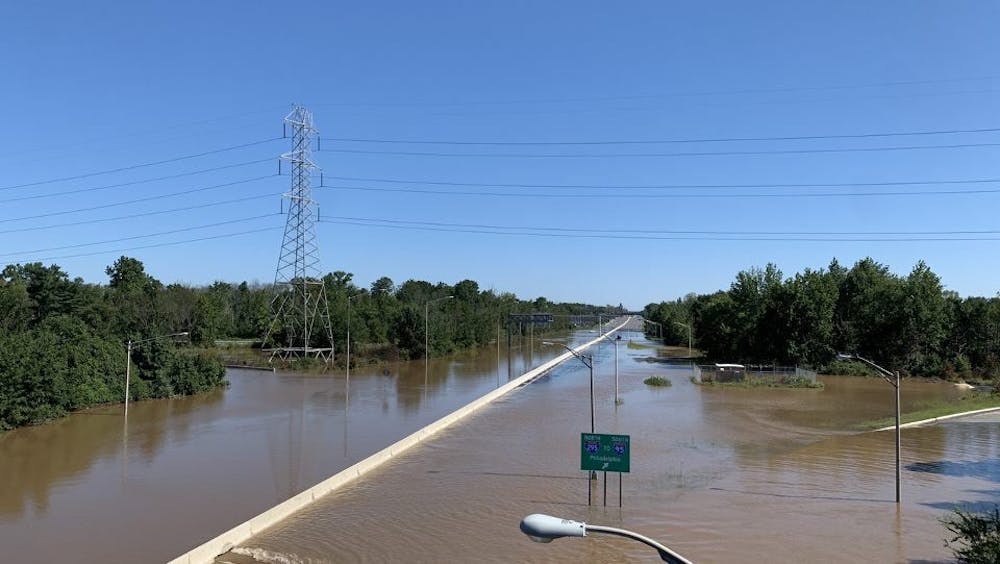By Dr. Diane Bates
The 2021 United Nations Intergovernmental Panel on Climate Change (IPCC) report on the physical science explaining climate change, which was just released last month, indicated two expected changes in Eastern North America (including New Jersey): very likely increases in mean (average) and extreme (storm) rainfall; and likely increase in flooding related to both rivers rising and rainfall. Last week, we experienced pretty convincing evidence of both. In fact, Ida was the fourth tropical system to affect New Jersey this season, which is an unprecedented amount of tropical influence for the Garden State’s weather. As the IPCC report also documents, we can put to rest any doubt about whether climate change is occurring; it is.

The biggest remaining question is what are we going to do about it? The IPCC report establishes with great confidence that human activities are the underlying driver of climate change, particularly in the energy and agricultural sectors. Energy production and consumption is the greatest contributor to climate change by far. At a foundational level, then, human societies must reduce energy consumption that relies on any source that contributes to greenhouse gas emissions. TCNJ is taking deliberate steps in this direction, such as with the installation of solar panels. This installation should be commended, but they are just the start of our need to address our dependence on fossil fuels. Of course, this is a very long-term issue and not one that TCNJ can solve on its own.
In the short and medium terms, we also need to talk about adaptation and mitigation. Adaptation means that we must modify how people live in order to accommodate the changes in our local climate (and attendant weather patterns), while mitigation refers to taking steps to limit future (expected) damage. In the wake of Superstorm Sandy (2012), Jersey Shore communities instituted mandates such as elevating houses near the waterfront as part of its adaptation and mitigation strategies. Many of the costs of these changes have been borne by private homeowners (although often subsidized by the state and federal government), but the state has also committed public resources to restoring dunes, improving drainage and stability of roads and bridges, and investing in stormwater runoff systems. It is clear after Ida that we need even more public investment in adaptation and mitigation.
As the nation's most densely populated state, full of highly valuable real estate, floods are going to continue to cause increasing damage to homes, businesses, and infrastructure in the foreseeable future. It is unrealistic to expect that New Jersey will be able to clear floodplains of existing structures, as was done after the Mississippi (2011) and Red River (1997) floods in the Midwest. We have two realistic options: 1) increase the direct and indirect subsidies for hazard insurance (e.g., flood insurance) and public expenditure for emergency services and disaster relief; and/or 2) increase public investment in long-term adaptation and mitigation strategies, including more resilient buildings and infrastructure, as well as making sure all future developments in New Jersey take climate change into account. Failure to make these investments (including the failure to move away from fossil fuels) means that by default, we are choosing the former -- which is by far the more expensive strategy over the long term.
So what can people at TCNJ do? We can all modify our personal behaviors to reduce consumption, both of non-renewable energy and the myriad products (including food) that depend on fossil fuels: walk, bike, or take public transit instead of driving; eat "lower on the food chain"; buy local and artisan food and products; avoid "fast-fashion" and other deliberately disposable consumer goods (including non-reusable containers). These are all good practices and will make a difference, but the most important changes need to be structural. This means that people need to work to change the institutions they can influence, including supporting sustainability initiatives at TCNJ. More fundamentally, this means active participation in community, private sector, and political activities that demand bold action and responsiveness to these ongoing environmental changes.
And all hands on deck! We all share the risk and responsibilities of living in a place that is facing the immediate consequences of climate change. Both Democratic and Republican leadership in New Jersey have good track records of environmental stewardship, but neither party has fully embraced the qualitative shift that the IPCC indicates will be necessary to mitigate the damage from climate change, much less reverse it. Thus, we need to press both political parties to be more proactive about climate change, but we cannot be limited to formal political action. Change your individual behaviors; change how you live in your own home; change how your workplace and social organizations operate.
Editor's Note: Dr. Diane Bates is a sociology professor at the College of New Jersey. She authored the book "Superstorm Sandy: The Inevitable Destruction and Reconstruction of the Jersey Shore" in 2016 and previously co-directed National Conference on Undergraduate Research (NCUR) research program. The views expressed in this commentary are her own.







